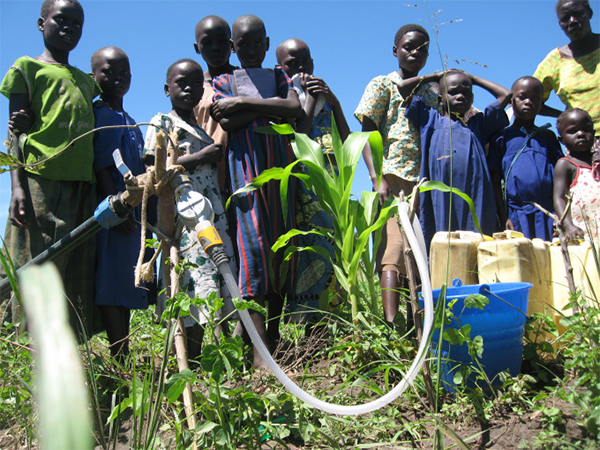Unlocking the Potential of Groundwater for the Poor (UPGro) was an international research programme that ran from 2103 to 2021 and was funded by the UK’s Department for International Development (now the Foreign, Commonwealth & Development Office), the Natural Environment Research Council (NERC) and the Economic and Social Research Council (ESRC). It focused on improving the evidence base around groundwater availability and management in sub-Saharan Africa to enable developing countries and partners in the region to use groundwater in a sustainable way, in order to benefit the poor.

Water chemistry sampling in Uganda. BGS © UKRI.
There were five consortium projects as part of UPGro. One of them was Hidden Crisis, led by researchers at BGS. This project aimed to unravel the immediate and underlying causes of poverty as a functionality of rural groundwater supplies in sub-Saharan Africa. The available existing data suggested up to a third of these supplies failed within just a few years of construction and enter repeated cycles of failure and repair, or are abandoned altogether.
Aims and objectives
The Hidden Crisis project aimed to develop a robust evidence base of the large-scale status of rural groundwater supply functionality across three countries — Ethiopia, Malawi and Uganda — that have struggled for decades with service sustainability. This work will be focused on boreholes fitted with hand pumps (HPBs), these being most prevalent form of rural groundwater supply in sub-Saharan Africa.
The second phase of the project undertook much more detailed, interdisciplinary research to try to understand the key underlying conditions (physical and institutional) that lead to the poor functionality of HPBs. The evidence base and understanding developed from the research helped inform future policy and practices.
Within each of the three countries, the project carried out both extensive research (mapping functionality status across populations and large areas) and intensive research (addressing ‘how’ and ‘why’ questions in context-specific locations).
Research consortium
The research consortium was led by the BGS and made up of an interdisciplinary research team of leading UK, African and Australian researchers on water governance, hydrogeology, systems engineering and groundwater recharge, together with WaterAid. Research in each country was led by the country’s academic institute with WaterAid country offices. The country teams also provided key pathways to practitioners and local and national governance institutions.
More information
Contact
Please contact Alan MacDonald for further information.

